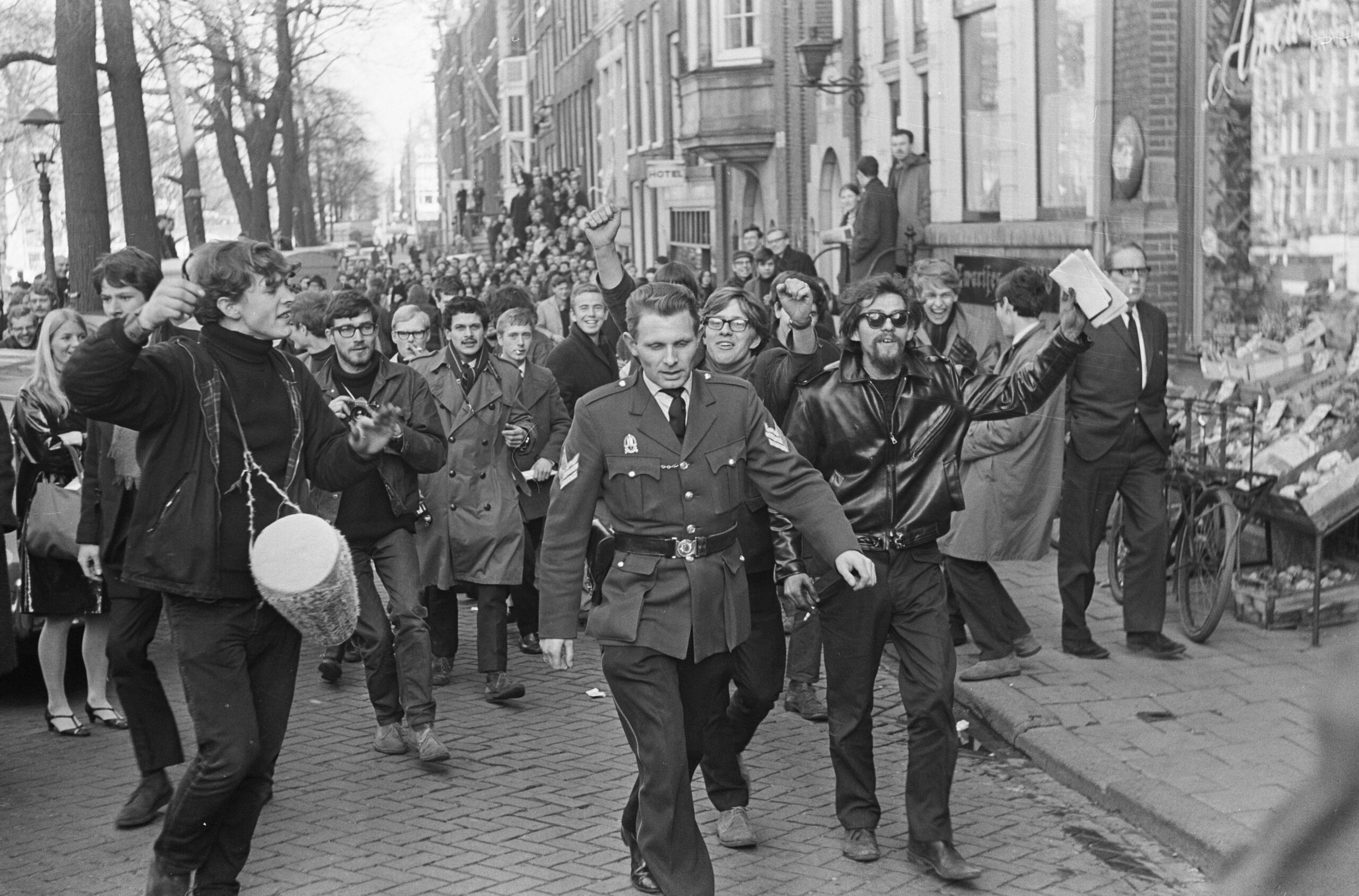The Provos emerged in the early 1960s as a response to the conservative climate of post-war Netherlands. Fueled by a desire for social change, these young activists set out to confront the pressing issues of their time: political oppression, the Vietnam war, and the enduring threat of nuclear warfare.
At the heart of the Provos’ organizing philosophy was the belief in the power of collective action and self-reliance based in mutual aid pratices. They rejected traditional hierarchical structures and instead embraced a horizontal, decentralized approach to activism. Their “white plans” were a series of provocative and often humorous proposals designed to challenge the establishment while simultaneously encouraging community participation. For instance, the famous “White Bicycle Plan” envisioned a city where public bicycles were freely available to all, promoting both sustainable transportation and a sense of shared ownership. While the plan itself was not fully implemented during their time, it laid the foundation for the city’s extensive network of public bicycles and bike-friendly infrastructure, which today means amsterdam is the world’s most bicycle-friendly city.
The provos established squats across Amsterdam, which served as communal living spaces where members pooled resources and supported one another in various ways, from sharing meals to organising protests.
